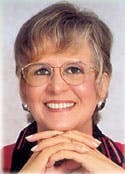A friend faulted me the other day for my slap-dash computer skills, disbelieving that I could not perform certain functions that he found to be part-and-parcel of his daily routine. I dont have to use those things, so I havent bothered to learn them was my retort. He then quizzed me about using features on the telephone system; my response was the same. In a momentary fit of pique some would argue, incoherence I then compared myself to the late genius, Albert Einstein. I recounted the story of Alberts need to call home from work. He pulled out a notebook to look up his own telephone number. To his flabbergasted assistant, Einstein supposedly commented that he never cluttered his mind with information that he could simply look up. Comparing myself to Albert was the wrong thing to do, I suspect, as my friend left my office in his own fit of pique, muttering about what a dinosaur I am. I wondered if he would have accused Einstein of the same.Like it or not, these days we all have to rev up the little gray cells just to keep abreast of what is going on around us. Forget figuring out how it works or what it does. The traditional three Rs for young people readin, ritin and rithmetic have given way to a new standard for mature folk: renewin, reflectin and reviewin. And nowhere is the concept more important or timely than in the world of the clinical laboratory, now a-swirl with far-reaching genetic and technological advances. Each month, MLO offers a continuing education test as part of its cover feature. This months article on von Willebrand factor-cleaving protease in thrombotic thrombocytopenic purpura yes, at first, I did think it was a tongue-twister prompted me to think long and hard about ongoing learning. The fact that we all learn differently and at varying speeds was once a problem for the classroom teacher; after all, homogenizing young pupils was that teachers primary responsibility. In the early 50s, if you could not get through the Alice and Jerry books with the rest of Mrs. Shulls class oh, well, you failed. We even had a stool set in the corner with a dunce cap on it oops, I am beginning to understand that dinosaur comment now.These days, continuing education can be a real adventure. As our guest writer explains in this months Observatory, developing, maintaining, and/or increasing knowledge, skills and professional performance is but a cruise away. Training, retraining and updating professional licenses can be done at your leisure in front of that home computer (in your p.j.s) with the latest CD or online tutoring program. In-house training includes the opportunity to try, try, try again, if at first you do not get it. Local, regional, national and/or international focus groups via Webinars afford everyone the opportunity to participate with peers without outlaying travel expenses and without losing precious hours in the laboratory. The slew of continuing education offerings in the clinical laboratory field make the new three Rs convenient and cost-effective, enjoyable and efficient, utterly feasible and often fun.Thomas Huxley observed, Perhaps the most valuable result of all education is the ability to make yourself do the thing you have to do, when it ought to be done whether you like it or not. So, I did the thing I had to do I took action. I signed up for an in-house class in Excel, and then scrounged up a copy of the voicemail handbook. I also stopped using Einstein as an excuse, but mostly, I refused to be a Diplodocus.Carren Bersch
[email protected]
November 2003: Vol. 35, No. 11©
2003 Nelson Publishing, Inc. All rights reserved.
[email protected]
November 2003: Vol. 35, No. 11©
2003 Nelson Publishing, Inc. All rights reserved.
About the Author
Sign up for our eNewsletters
Get the latest news and updates


